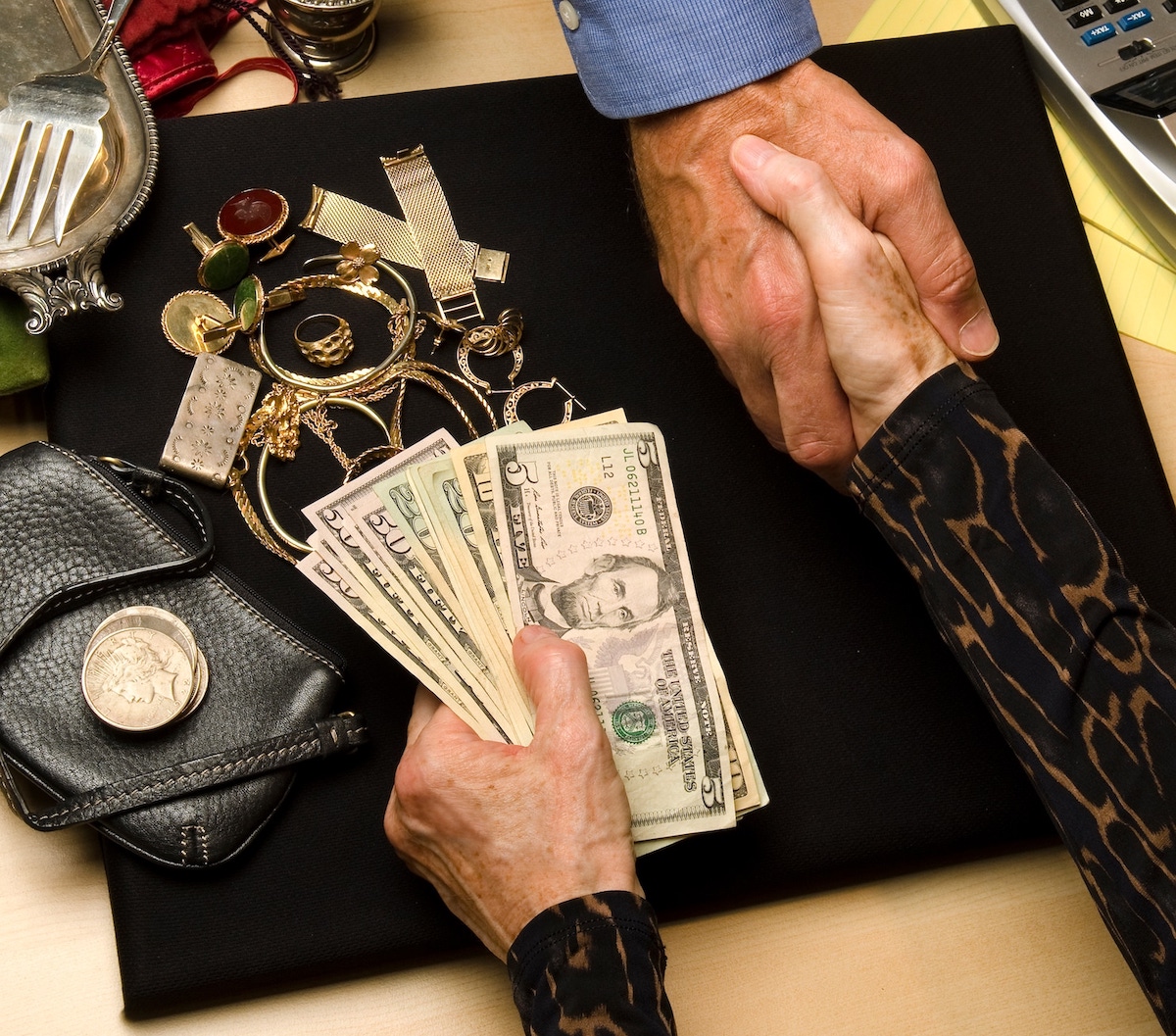You’ve just gone through your jewelry box and discovered you have a lot of pieces you just don’t love and will never wear. Some may have been gifts, pieces you’ve inherited, or memories of past relationships you want to let go. So, you’re considering selling or liquidating them instead of leaving them in that jewelry box for many more years. There are a few options to make confident, educated decisions to handle this correctly.
It’s important to take your time to decide what you want to let go of and what you may want to keep to have repurposed or redesigned into something you’ll love. Once sorted into which items you will part with, here’s the information you’ll need to know and the steps you can take to ensure a successful sale of the items to get the most value in return.
Salability factors of jewelry
Jewelry is a valuable asset often bought and sold for its beauty and investment value. Several factors affect the salability of jewelry.
1. Quality of Materials
The quality of materials used in jewelry production plays a significant role in its salability. High-quality materials, such as gold, platinum, and diamonds, are more valuable and sought after than lower-quality materials.
2. Design
The design of the jewelry is also essential in determining its salability. Unique and attractive designs in vogue sell better than outdated or plain designs.
3. Brand
The brand of the jewelry also impacts its salability. Well-known and reputable brands have a higher demand and can fetch higher prices than unknown brands.
4. Condition
The condition of the jewelry is another significant factor in its salability. Jewelry which has been well-maintained and is in excellent condition is more attractive to buyers than jewelry that is damaged or worn out.
5. Rarity
The rarity of the jewelry also affects its salability. Rare and unique pieces which are hard to come by tend to sell for higher prices than more common pieces.
6. Historical Significance
Jewelry with historical significance, such as antique or vintage pieces, can also be highly sought after and fetch high prices.
The salability of jewelry depends on several factors, including the quality of materials, design, brand, condition, rarity, and historical significance. Jewelry with a unique combination of these factors will likely sell for a higher price than jewelry that lacks one or more.
Ready to Sell? First Things First: Get Your Jewelry Appraised
Get your jewelry appraised by a professional appraiser. This appraiser should be a GIA Graduate Gemologist with experience, additional education, and credentialling who is a member of NAJA (National Association of Jewelry Appraisers) or some equivalent professional organization.
Whether or not you decide to keep, sell, or redesign your jewelry, it’s a good idea to have the jewelry appraised by a professional appraiser. This protects you from any loss or damage if you have detailed information you can provide to your insurer.
Ask your professional appraiser to provide two separate values for appraised items. One is the “insurance replacement value,” which protects you when appropriately insured in case of loss or damage. The other is the “fair market or liquidation value,” which indicates the actual cash value you will most likely receive when selling the item. This second value should be stated on a separate document apart from the “insurance replacement value” so it does not hinder your price negotiations in selling later on.
Tips for Selling Your Jewelry
1. Sell your jewelry to a reputable dealer, jeweler, or estate buyer specializing in buying and selling precious jewelry.
Before you sell your jewelry, research to find someone who specializes in buying and selling precious jewelry. Read the reviews, get referrals from friends, and check their reputation. Because you have gotten your jewelry appraised beforehand, you’ll better understand its value.
When you meet with the jewelry buyer, bring the appraisal and any other documentation about the jewelry, and be prepared to negotiate the price. Getting a second opinion before making a final decision is always recommended, as one buyer may have a completely different perspective of the value.
2. Sell your jewelry online through a reputable auction or consignment site.
Research and select an online business specializing in fine jewelry to sell through a reputable auction house or consignment site. Websites like eBay, 1stdibs, or Ruby Lane are popular consignment sites for high-end jewelry.
Once you’ve selected a consignment site, you’ll need to create an account on their website and list your items for sale. Be sure to include clear, high-quality photos of the jewelry and a detailed description of the piece, including any documentation you have about it.
You’ll also need to set a price for the jewelry and decide whether you want to sell it through an auction or at a fixed price. If you choose to sell the jewelry through an auction, you’ll need to set a starting bid and a reserve price—the minimum price you are willing to accept.
Keep in mind that selling jewelry through a consignment site can take time, as the shop will need to find a buyer for your items. However, it is a convenient way to reach a wider audience and get a higher price for your jewelry.
When your jewelry sells, the consignment site will typically handle the shipping and payment process, deduct their commission fee from the sale price, and then send you the remaining balance.
Shipping will be your responsibility if you sell the jewelry through an auction site like eBay. Be sure to use a secure shipping method and insure the package for the total value of the jewelry.
Keep in mind that selling jewelry online can be time-consuming and may require some effort on your part to market and promote your items effectively. However, it can also be a convenient way to reach a wider audience and potentially get a higher price for your jewelry.
3. Working with a Private Gemologist to help you appraise and sell your jewelry.
Imagine having your own private gemologist advising you in an honest and unbiased manner about everything diamonds and jewelry. As a GIA Graduate Gemologist, diamond and jewelry buyer and appraiser, and former owner of a multi-store chain of fine jewelry stores, I have unique knowledge and experience in many facets of the jewelry industry, giving me an inside perspective, which I happily and generously share with my clients.
We can go through your jewelry box together to make those important decisions together. I can perform the expert appraisals and then refer you to or accompany you in selling your jewelry. I also have relationships with estate and consignment buyers worldwide to get the best value for your jewelry if you decide to liquidate it.
Since I have years of experience in appraising and liquidating fine jewelry, I can confidently and expertly handle all negotiations to ensure you get the best price for your jewelry.
You’ve decided to keep your jewelry and have it repurposed into a new piece you’ll love.
Repurposing jewelry is a great way to give new life to old pieces and create a unique piece that reflects your personal style. You have the memory of where the piece came from in a setting that’s up-to-date and flattering. I love working with clients to offer creative ideas for custom designs. I have a network of creative and skilled designers and goldsmiths I work with, giving you peace of mind knowing you’re working with a trusted partner.
Scheduling a complimentary discovery call to discuss your jewelry needs
I’d love to help you go through your jewelry box, appraise pieces, and talk about the best course of action. I invite you to book an appointment with me or Contact me today to learn more! I often meet with my clients in person or via a Zoom conference call online.


